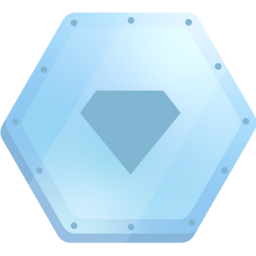Adrian Kosmaczewski
Member since 2024
Diamond League
18880 points
Member since 2024

This course, Responsible AI: Applying AI Principles with Google Cloud - Locales, is intended for non-English learners. If you want to take this course in English, please enroll in Responsible AI: Applying AI Principles with Google Cloud. As the use of enterprise Artificial Intelligence and Machine Learning continues to grow, so too does the importance of building it responsibly. A challenge for many is that talking about responsible AI can be easier than putting it into practice. If you’re interested in learning how to operationalize responsible AI in your organization, this course is for you. In this course, you will learn how Google Cloud does this today, together with best practices and lessons learned, to serve as a framework for you to build your own responsible AI approach.
Earn a skill badge by completing the Introduction to Generative AI, Introduction to Large Language Models and Introduction to Responsible AI courses. By passing the final quiz, you'll demonstrate your understanding of foundational concepts in generative AI. A skill badge is a digital badge issued by Google Cloud in recognition of your knowledge of Google Cloud products and services. Share your skill badge by making your profile public and adding it to your social media profile.
This is an introductory-level microlearning course aimed at explaining what responsible AI is, why it's important, and how Google implements responsible AI in their products. It also introduces Google's 7 AI principles.
This is an introductory level micro-learning course that explores what large language models (LLM) are, the use cases where they can be utilized, and how you can use prompt tuning to enhance LLM performance. It also covers Google tools to help you develop your own Gen AI apps.
This is an introductory level microlearning course aimed at explaining what Generative AI is, how it is used, and how it differs from traditional machine learning methods. It also covers Google Tools to help you develop your own Gen AI apps.
This course covers how to implement the various flavors of production ML systems— static, dynamic, and continuous training; static and dynamic inference; and batch and online processing. You delve into TensorFlow abstraction levels, the various options for doing distributed training, and how to write distributed training models with custom estimators. This is the second course of the Advanced Machine Learning on Google Cloud series. After completing this course, enroll in the Image Understanding with TensorFlow on Google Cloud course.
This course takes a real-world approach to the ML Workflow through a case study. An ML team faces several ML business requirements and use cases. The team must understand the tools required for data management and governance and consider the best approach for data preprocessing. The team is presented with three options to build ML models for two use cases. The course explains why they would use AutoML, BigQuery ML, or custom training to achieve their objectives.
This course explores the benefits of using Vertex AI Feature Store, how to improve the accuracy of ML models, and how to find which data columns make the most useful features. This course also includes content and labs on feature engineering using BigQuery ML, Keras, and TensorFlow.
This course covers designing and building a TensorFlow input data pipeline, building ML models with TensorFlow and Keras, improving the accuracy of ML models, writing ML models for scaled use, and writing specialized ML models.
The course begins with a discussion about data: how to improve data quality and perform exploratory data analysis. We describe Vertex AI AutoML and how to build, train, and deploy an ML model without writing a single line of code. You will understand the benefits of Big Query ML. We then discuss how to optimize a machine learning (ML) model and how generalization and sampling can help assess the quality of ML models for custom training.
This course introduces the AI and machine learning (ML) offerings on Google Cloud that build both predictive and generative AI projects. It explores the technologies, products, and tools available throughout the data-to-AI life cycle, encompassing AI foundations, development, and solutions. It aims to help data scientists, AI developers, and ML engineers enhance their skills and knowledge through engaging learning experiences and practical hands-on exercises.